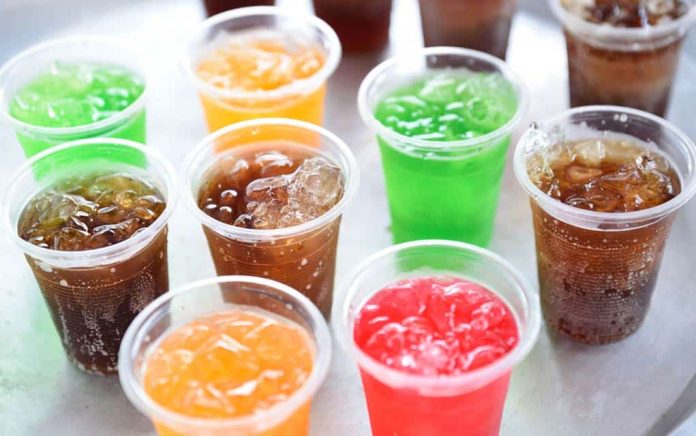
(HealthyResearch.com) – Most of us could probably think of a dozen reasons to crack open a can of soda pop right now. It can be such a satisfying choice, so sweet and refreshing, making it easy to justify having just one or two a day. But even a small amount of regular soda use can be harmful to your health.
Here are 12 reasons you should consider cutting soda out for good:
- It can destroy sleep quality. Most pop contains caffeine, which can be great for focus but terrible for sleep. Studies have shown that caffeine intake up to 6 hours before bed can contribute to insomnia.
- Soda may cause GI imbalances and leaky gut. Sugar can affect the balance of microorganisms in your intestinal tract. Poor gut health can negatively affect the immune system and lead to inflammation.
- It can lead to tooth decay. It’s no secret that sugar is terrible for your teeth. Soda’s high acidity is equally as destructive and can erode the enamel. Regularly subjecting your teeth to any kind of soda might doom your teeth to slow but consistent decay.
- Soda may threaten bone health. A study on postmenopausal women found an association between soda consumption and an increased rate of hip fractures. The high sugar content in regular pop could be partially responsible, but diet soda drinkers appear just as susceptible. Higher body mass index (BMI), associated with all types of soda consumption, could affect fracture risks. It’s also possible that people who drink multiple sodas a day are missing nutrients from choices like milk, leading to deficiencies. It’s also possible that phosphoric acid and caffeine contribute to calcium leaching from bones, but studies were not conclusive.
- It can lead to weight gain. As noted above, regularly drinking soda pop vastly increases a person’s chances of having a higher BMI. The most obvious culprit behind this is all the sugar in regular sodas, but the artificial sweeteners in diet sodas have also been linked to weight gain.
- Soda can cause heart disease. It doesn’t matter if you drink regular pop or a diet alternative; both can lead to health changes that can end in heart disease.
- It increases the risk of metabolic syndrome. Soda pop could turn your body’s whole metabolism upside down. In fact, drinking sugary stuff alone can increase your chances of developing metabolic syndrome by 20%. And diet soda is arguably worse, increasing the risk to 36%.
- Soda may cause diabetes. Researchers aren’t 100% sure what it is about soda that raises diabetes risk, but both regular and diet varieties appear to cause similar increases. It may have something to do with the metabolic changes, as mentioned above.
- It can raise blood pressure. If you’re having trouble keeping your blood pressure within normal levels, pop could be one of your problems. High sugar and sodium consumption can cause unwanted spikes in blood pressure.
- Soda could cause kidney disease. Pop has been linked to several risk factors for kidney disease: diabetes, high blood pressure and kidney stones, which are caused by the phosphoric acid in cola. Drinking two or more sodas a day may result in chronic kidney disease. Diet soda also poses a risk.
- It may lead to stroke and dementia. Sugary sodas create oxidative stress and changes in brain chemical levels that can lead to all sorts of potential problems in the brain. Complications may include neurochemical and cardiovascular changes that can lead to stroke and dementia, as well as memory loss, blindness and seizures and ADHD in kids.
- Soda consumption is linked to certain cancers. The sugar content in regular soda has been found to increase the risk of breast cancer and overall cancer. Artificial sweeteners have also been linked to cancer. Avoid both to lower your overall cancer risk.
Soda pop might hit the spot sometimes, especially during meals or on a hot day, but is it really worth all the increased health risks? Try drinking water with a splash of juice instead, or give sparkling cider or kombucha a shot. Consider making soda a rare treat — your health might depend on better choices.
~Here’s to Your Health & Safety!
Copyright 2021, HealthyResearch.com
















